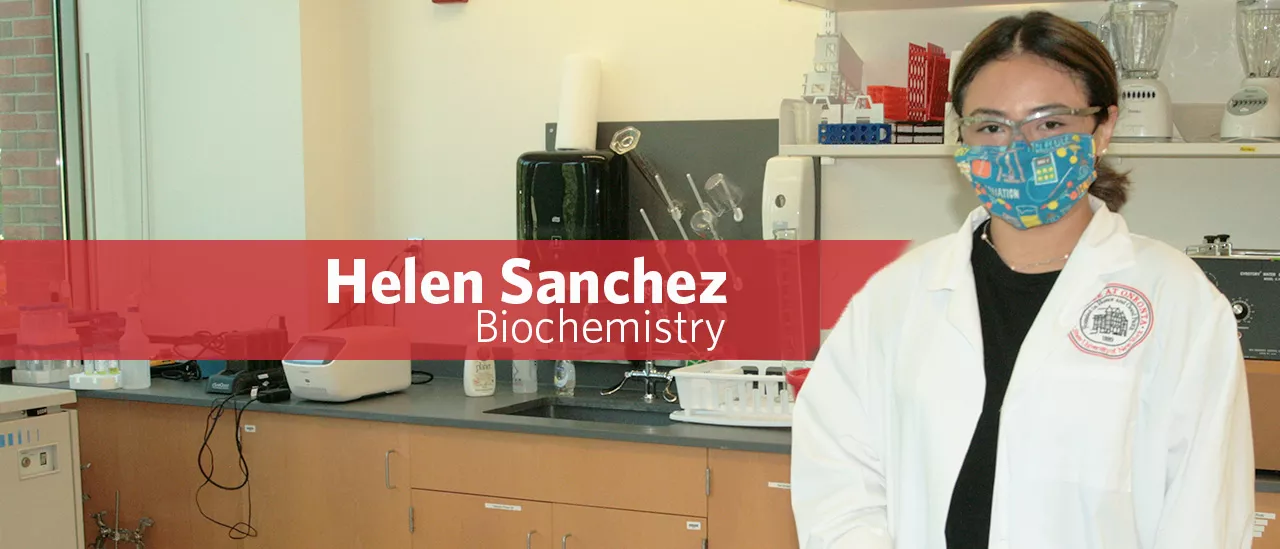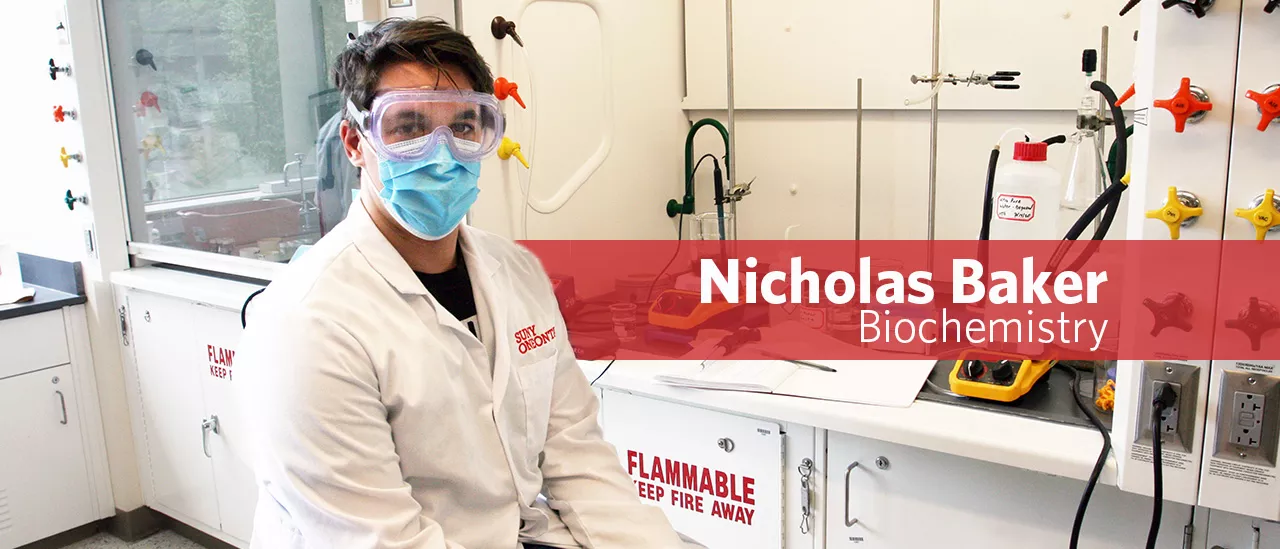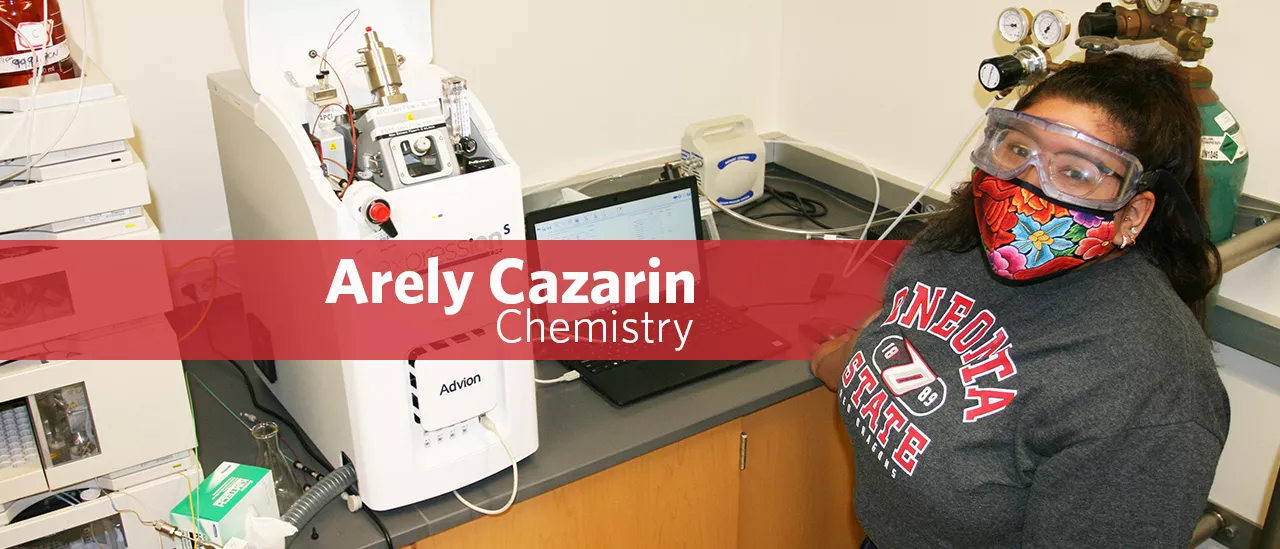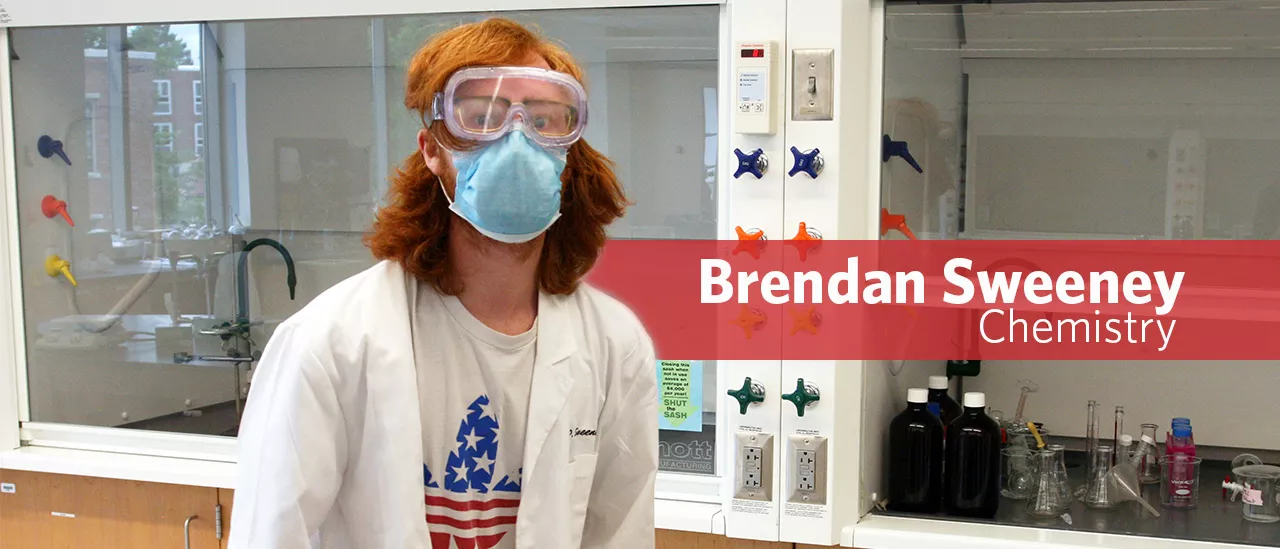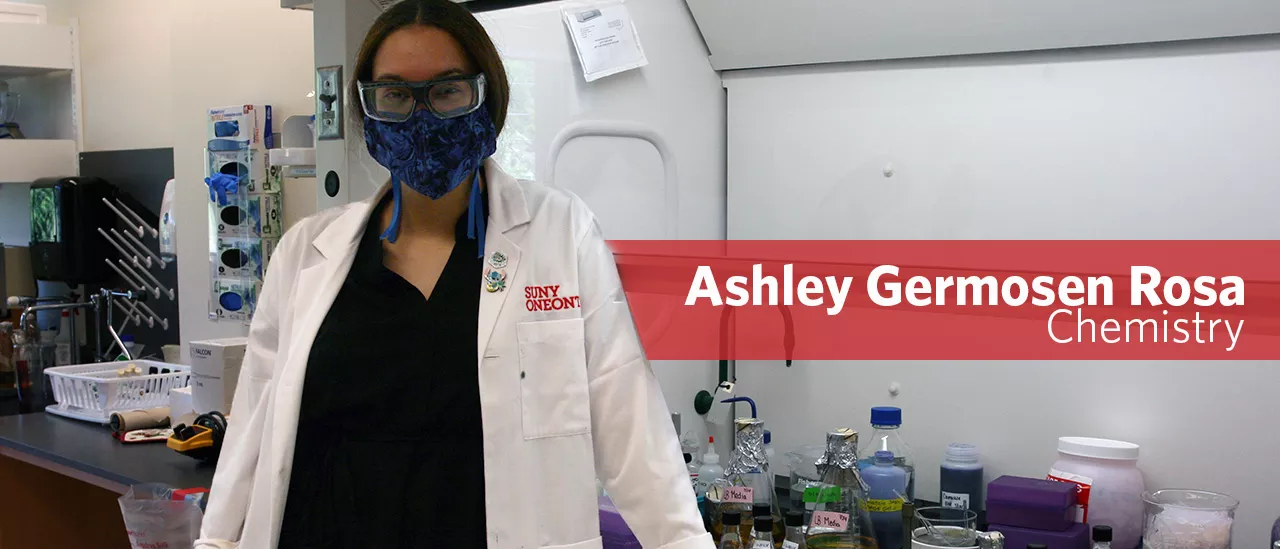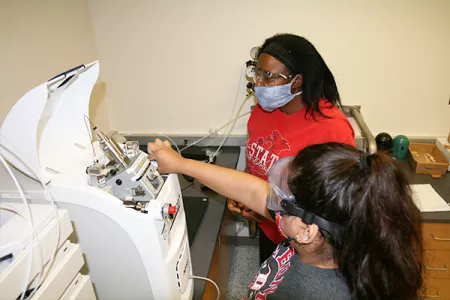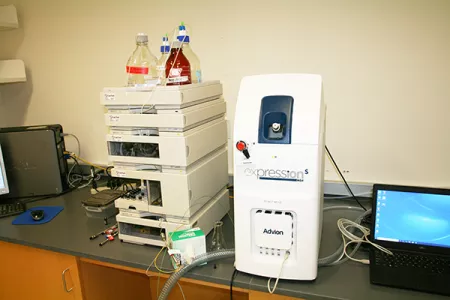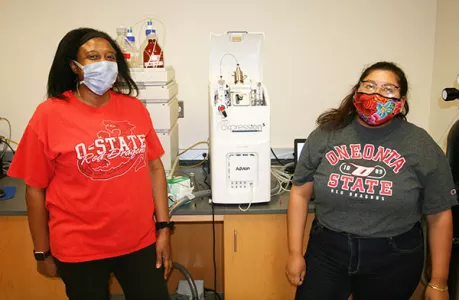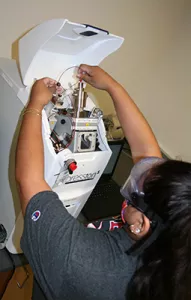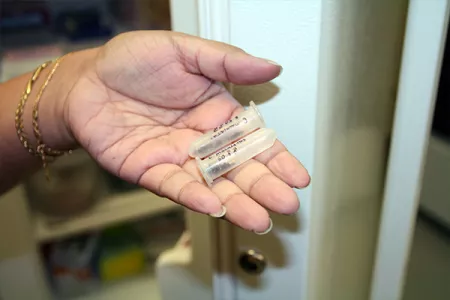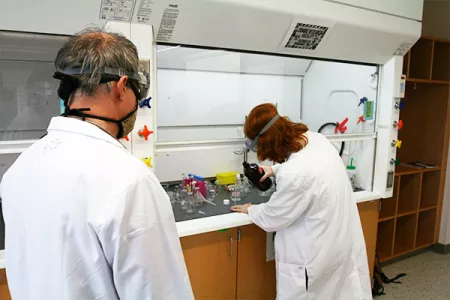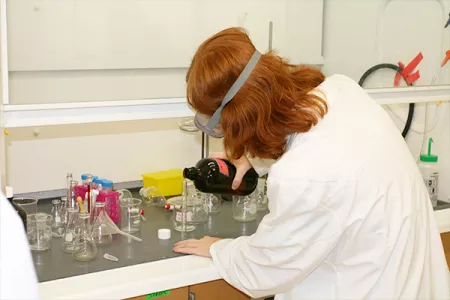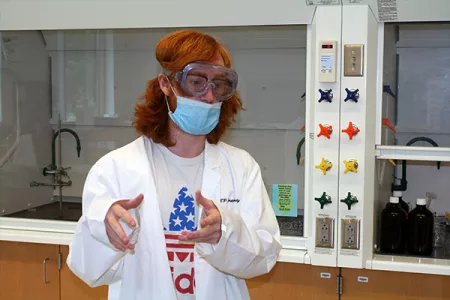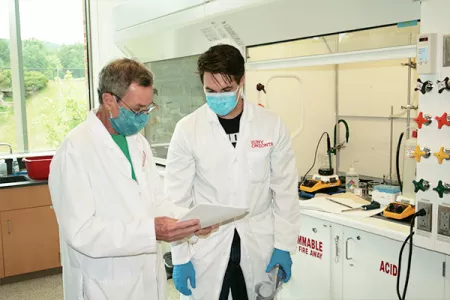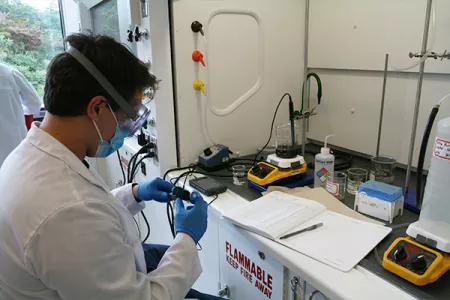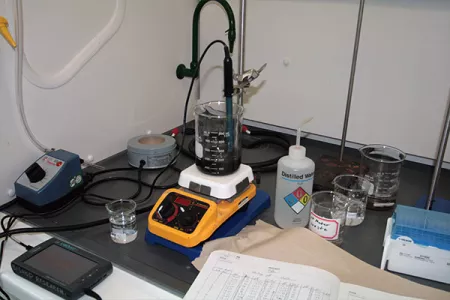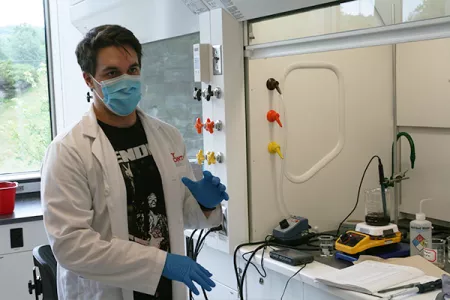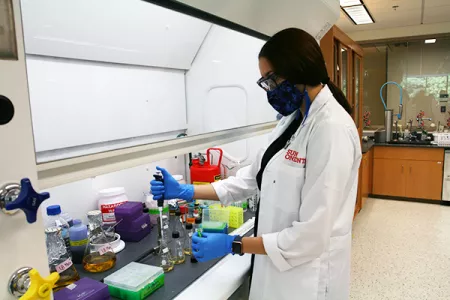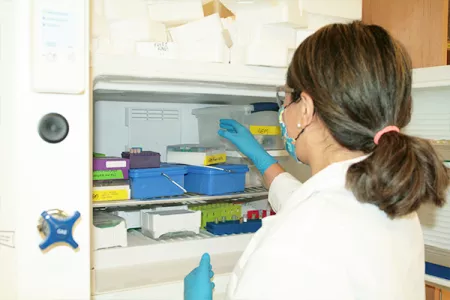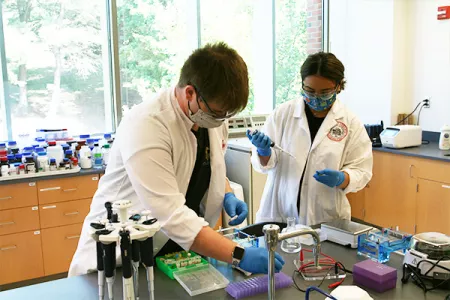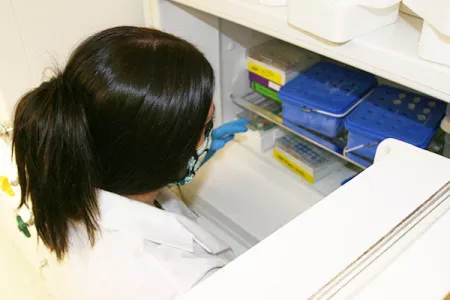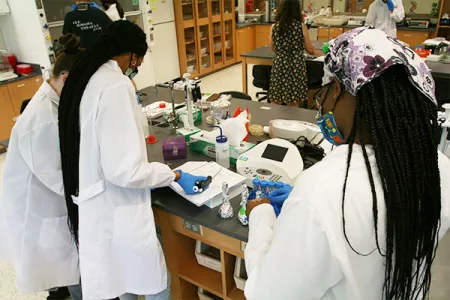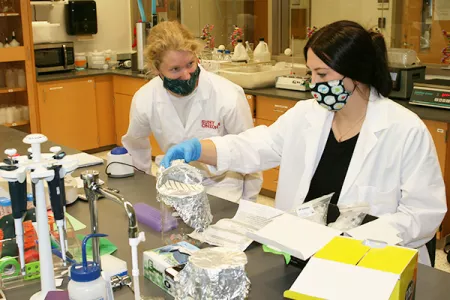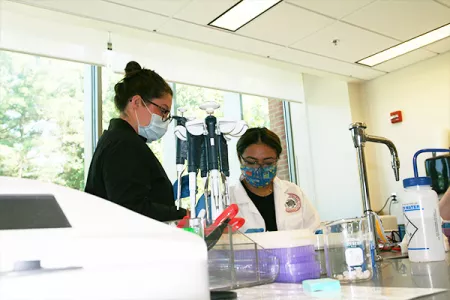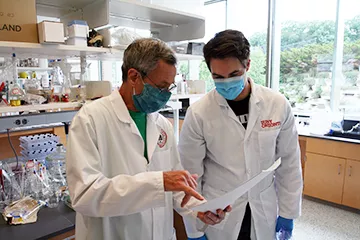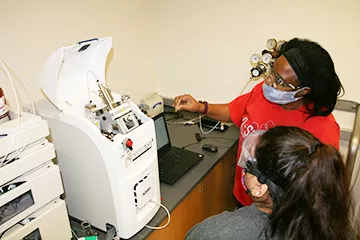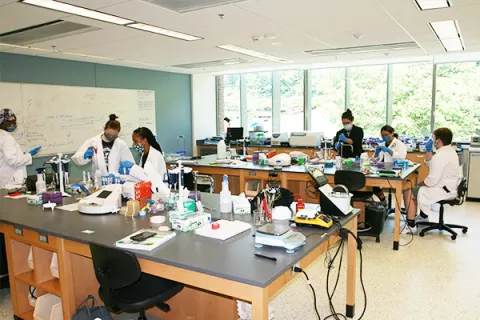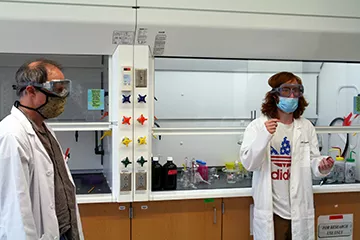Tags:
Seventeen SUNY Oneonta science students are getting hands-on lab experience during summer research projects on topics ranging from hydrofracking to beetle mating habits.
On a recent Wednesday afternoon, the Physical Science Building second-floor labs were full of activity. In one lab, junior Nicholas Baker was working with Assistant Professor Ron Bishop (Chemistry and Biochemistry) to study Marcellus shale and hydrofracking chemicals. “Some of the long-term goals of our research are to look for the chemical interactions that aren’t really known to be going on: interactions between the chemicals being used by producers to extract the gas and the chemicals that are already down there in the rocks,” Bishop explained.
Baker, a biochemistry major from Schenevus, NY, said he’s loved having the opportunity to work in a lab five days a week, six hours a day. “I’ve learned so much and it’s giving me a lot of lab experience that I wouldn’t have gotten otherwise,” he said, while titrating a beaker of chemicals extracted from Marcellus shale in order to gain a better understanding of the rock’s buffering capacity. “Plus, this research is actually really interesting and it affects the area, so it’s pretty important.”
Across the atrium in one of the instrumentation rooms, senior Arely Cazarin was using a mass spectrometer to analyze beetle compounds. Cazarin, a chemistry major from Albany, NY, is working with Associate Professor Trudy Thomas-Smith (Chemistry and Biochemistry) and Assistant Professor Elizabeth Bastiaans (Biology) to extract and examine pheromone compounds from bean beetles. Their goal is to see if the differences in male mating behaviors with virgin and non-virgin beetles could be related to the pheromones the females produce.
Several classrooms and labs were being used by a team of 14 students who are working with Associate Professor Kelly Gallagher (Chemistry and Biochemistry) and Assistant Professor Jill Fielhaber (Biology) to prepare for the International Genetically Engineered Machine (iGem) synthetic biology competition this fall. Using a variety of molecular biology, microbiology and biochemical techniques, the students are developing a field test kit to look for a specific gene variant in dairy cows. The goal is to help farmers determine if their cows carry the gene to produce A2 milk, a type of milk that may have health benefits over the A1 type predominantly sold in the United States.
The interdisciplinary iGEM team includes students majoring in biology, chemistry, biochemistry, environmental sustainability, anthropology, dietetics, computer science and music industry. Eleven students are living on campus and working together in the Physical Science labs, and three are doing the research from home.
Meanwhile, in the organic chemistry lab, senior Brendan Sweeney was working with Assistant Professor Antoine Blanc (Chemistry and Biochemistry) to synthesize compounds that might potentially be used as novel antibiotics. Sweeney said he has learned a lot about scientific thinking through the work. “In a teaching lab, you know the result and you’re going to get quantifiable results. With research you don’t know the result,” said Sweeney, of Clifton Park, NY.
“I like to say that research is a whole lot of ‘re’ and then a whole lot of searching,” he said, “because you’ve got to repeat and try everything over and over. Ninety-nine percent of the time, it doesn’t work the first time, so you try something else, and that doesn’t work, and then eventually you find an answer.”
